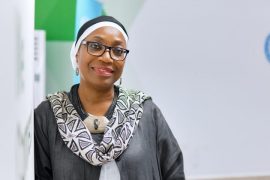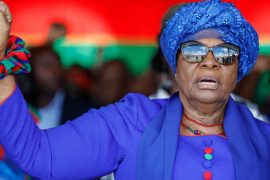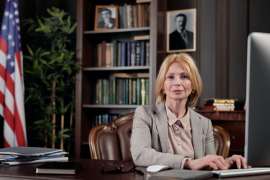By Donah Mbabazi
Any nation that fails to educate its girls or employ its women and allow them to maximise their potential is doomed to fall behind in the global economy. Imagine if you have a team and you don’t let half the team play, that’s stupid! That makes no sense.– Barack Obama, 44th President of U.S.A on his maiden visit to Kenya in 2015.
For a very long time, women were consigned to the back, especially when it came to key issues, such as decision-making, and this led to infamous narratives like ‘women belong in the kitchen’, a statement that will drive any feminist nutty trying to explain just how wrong that is.
There has been progress towards the equal representation of men and women in decision-making in the past ten years. According to statistics from UN Women, the percentage of women in parliament has nearly doubled in the last 20 years. As of January 2017, 10 women were serving as Head of State and nine were serving as Head of Government.
Rwanda has, for over a decade, been topping the global list of countries with the most female political parliamentarians. That’s mainly due to the country’s legally set quotas, with the Constitution stipulating that at least thirty per cent (30%) of Deputies in the Lower House of Parliament must be women.
Women in Saudi Arabia voted for the very first time in 2015 and were even allowed to run for public office. So, are women better off staying home to cook and knit? Can they make decisions on what is right for their home, or on a bigger scale, nation?
The latter is evident, with the past couple of strides serving as defining moments for women in the political sphere, with more of them stepping up and assuming key leadership positions.
From Rwanda’s Louise Mushikiwabo serving as the Secretary-General of Organisation Internationale de la Francophonie, to Sahle-Work Zewde, Ethiopia’s first female president, to Ilhan Omar, the first Somali American elected to the United States Congress.
What does this mean for the gender equality drive?
Olive Uwamariya, a woman activist, says women shining in big political roles means society is finally accepting that the world cannot be governed by men only.
She emphasises that women’s empowerment cannot be achieved if women are not seated at the table where decisions are made.
“When there are more women in decision making positions, it means we are likely to have laws and policies that benefit women, children and families because women understand the issues families and children face. These policies are also likely to have a positive impact on their lives,” Uwamariya says.
Political participation and representation is also a right, it is not a favour, the woman activist highlights.
“Women make up half of the population so it’s only logical to have them in leadership,” she says.
Amina Umuhoza, a feminist, says a woman assuming a top position in politics is proof that those who thought that women only deserved to be in the kitchen cooking were completely wrong, because women are exceeding expectations, and that is just the beginning.
There are plenty of things that kept women behind, such as gender-based violence and the different cultural stereotypes, Umuhoza points out.
“It is this that stopped our mothers and sisters from dreaming beyond getting married and raising kids. This mentality killed plenty of passion, potential politicians, innovators and change makers,” she says.
The proud feminist is, however, keen on how the world is yet to change, thanks to the evolving traditions that women are happily embracing.
“Things have now changed, women know their rights and they are able to fight for them, this is why we are reaping the fruits. Imagine what an inspiration these women are going to be for the young girls, they are going to grow up watching what their mothers at the forefront are doing,” Umuhoza says.
A man’s view
Iréné Mizero, Chairman and CEO at Mizero Care Organisation, is not a huge supporter of feminism, however, he believes that when it comes to women and leadership, society can always hope for the best because of the natural abilities women possess.
“Women have this natural thing for transparency and persistence; these two qualities are relevant when it comes to contributing to the changes we want to see in society,” Mizero says.
He adds, “Having top female leaders is a great moment for the world to test its innovations and creativity towards solving the problems that are existing in society. We look forward to testing those remedies that women have on the tray, and there is nothing to fear because Rwanda is proof of the positive changes that women have built.”
Mizero goes on to applaud the Rwandan and Ethiopian Governments for holding the flag high when it comes to women political representation, saying that this means that doors are open for women and that there is a significant change in societal attitudes, thinking and rules of engagement between women and men.
“When women are at the forefront in key decision making positions, it increases innovative solutions to governance and helps to tackle problems that women face, such as sexual harassment and gender-based violence,” he notes.
“Women leaders are capable of bringing the change society wants. The world should replicate Rwanda and Ethiopia’s approach because it is proving to be successful,” Mizero says.
Why a woman has a place in politics
Studies show higher numbers of women in parliament generally contribute to stronger attention to women’s issues. Women’s political participation is a fundamental prerequisite for gender equality and genuine democracy. It facilitates women’s direct engagement in public decision-making and is a means of ensuring better accountability to women. When more women hold top positions in politics, everyone benefits.
Bertin Ganza Kanamugire, a gender activist, says the changing face of society is enabling women to acknowledge their ability and the full transformation of women’s capacity.
Having women in these top positions gives them value and helps them to unveil their potential, Kanamugire says, noting that it was the wrong beliefs and fixed mind-set that society had on women that held them back.
With women in higher political positions, Kanamugire says other women are well represented and the challenges they face can be advocated for.
“When women challenge themselves by assuming top political roles, it helps them realise that they can also do what they never thought they would. Men, on the other hand, realise that women are no lower than them,” Kanamugire says.
An article published on the website of Women Deliver, a global advocate that champions gender equality, shows that achieving gender equality in political participation has both intrinsic and instrumental value.
Women in political office prioritise efforts to advance rights, promote equality, and leverage opportunity for women and girls. It’s a matter of human rights and it’s a matter of good governance, the article reads.
It goes on to explain that the composition of executives and legislatures also affects the quality of laws and influences the extent of their application. Evidence demonstrates that women leaders are more likely to respond to public needs and tend to cooperate across party lines. Historically, this is not the case for men in power.
“To accelerate their political careers, women need communication, connection and community. There is need to increase both the number and the influence of women in political leadership positions, optimising the power of communication and connection to build new communities of knowledge for women political leaders everywhere. Progress happens by convening women political leaders who have the drive and the influence to create positive change,” the article reads.
Adapted from Rwanda’s Leading Daily, The New Times.




